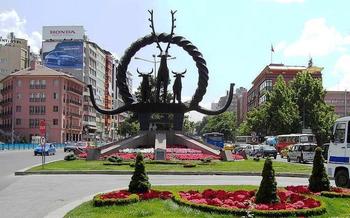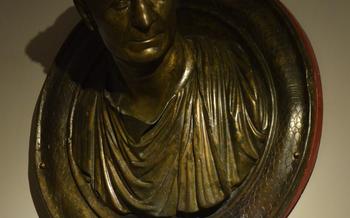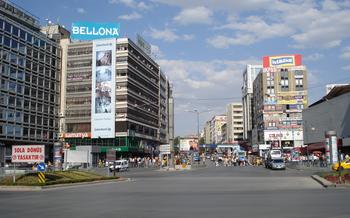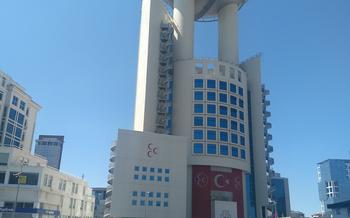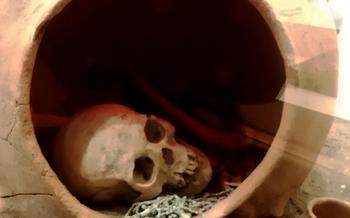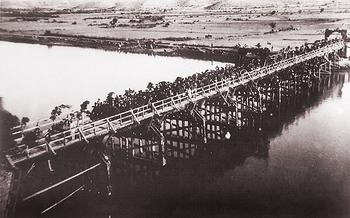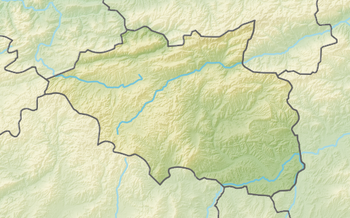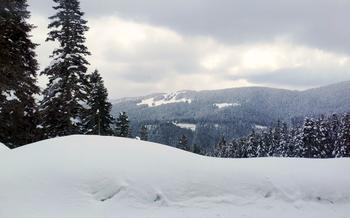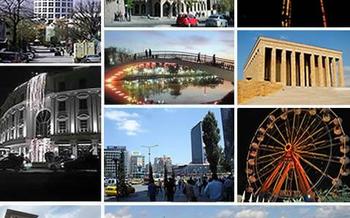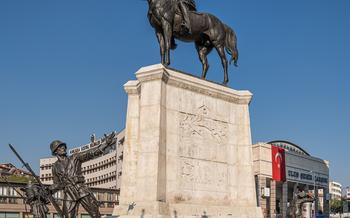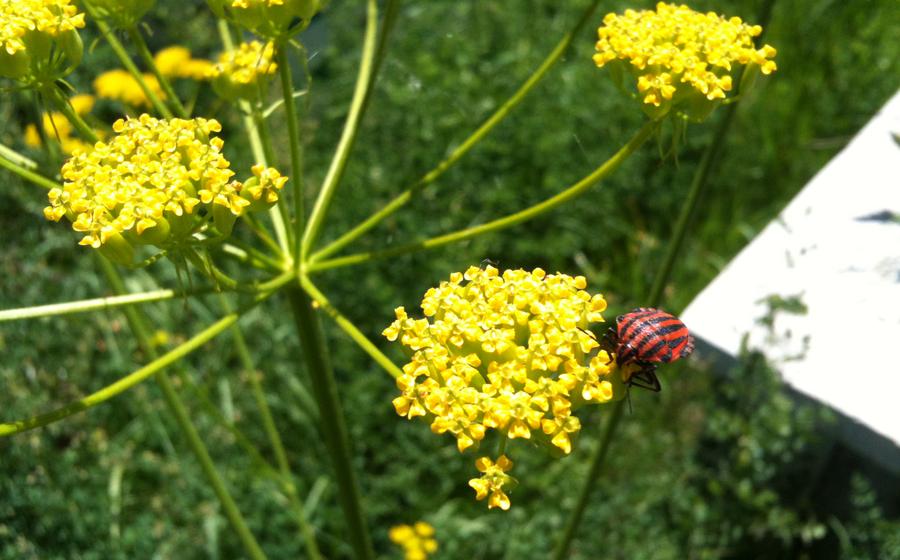
Korgun Ethnography Museum
- Korgun Ethnography Museum: A Journey Through History and Culture
- Artifacts and Handicrafts: A Glimpse into Local Craftsmanship
- Daily Life and Customs: Exploring Local Traditions
- Rural Lifestyle and Agriculture: Connection to the Land
- Nomadic Culture and Animal Husbandry: A Way of Life
- Nomads of Anatolia: A Journey Through Time
- Tents and Shelters: A Home on the Move
- Animal Husbandry: A Source of Livelihood
- Resilience and Challenges: Embracing the Nomadic Spirit
- Interactive Displays: A Hands-On Experience
- Village Architecture and Homes: A Reflection of Local Identity
- Festivals and Celebrations: Expressions of Joy and Community
- Cuisine and Local Delicacies: A Taste of Tradition
- Natural Landscapes and Surroundings: A Canvas of Beauty
- Storytelling and Legends: Passing on Traditions
- Educational Programs and Workshops: Engaging Visitors
- Accessibility and Visitor Information: Planning Your Visit
- Souvenirs and Local Products: Taking a Piece of History Home
- Nearby Attractions and Points of Interest: Exploring the Region
- Insider Tip: Unforgettable Experiences
Korgun Ethnography Museum: A Journey Through History and Culture
Nestled in the heart of Çankırı, the Korgun Ethnography Museum stands as a testament to the region's rich history and cultural heritage. Housed in a beautifully restored traditional Çankırı house, the museum offers a captivating journey through the lives, traditions, and customs of the local community.
With its carefully curated collections and interactive displays, the museum invites visitors to delve deep into the past and gain a profound understanding of the unique cultural identity of Çankırı. Step inside, and you will be transported back in time, surrounded by artifacts, textiles, tools, and handicrafts that whisper tales of a bygone era.
The museum's exhibits are a testament to the artistry and craftsmanship of local artisans, showcasing traditional techniques and skills that have been passed down through generations. From intricate textiles to delicate pottery and finely wrought metalwork, each piece tells a story of creativity, resilience, and the deep connection between the people of Çankırı and their land.
Artifacts and Handicrafts: A Glimpse into Local Craftsmanship
The Korgun Ethnography Museum houses an impressive collection of traditional textiles, pottery, and metalwork, offering a glimpse into the exceptional craftsmanship and artistic traditions of the region. Visitors can marvel at intricate woven carpets, colorful embroidered fabrics, and delicately painted ceramics, each piece showcasing the skill and creativity of local artisans.
The museum's exhibits provide insight into the techniques and skills passed down through generations, highlighting the importance of preserving these traditional crafts. Visitors can learn about the processes involved in creating these beautiful artifacts, from the shearing of wool and spinning of yarn to the intricate weaving and dyeing techniques.
Handicrafts play a vital role in preserving cultural heritage, as they embody the unique identity and traditions of a region. By showcasing these traditional crafts, the Korgun Ethnography Museum not only celebrates the skill of local artisans but also contributes to the preservation of Turkey's rich cultural tapestry.
To further enhance the visitor experience, the museum offers workshops and demonstrations, providing an opportunity for visitors to learn firsthand from skilled artisans. These workshops allow visitors to try their hand at traditional crafts, such as weaving, pottery, or metalworking, creating a memorable and interactive experience that deepens their understanding of local craftsmanship.
Daily Life and Customs: Exploring Local Traditions
The Korgun Ethnography Museum offers a fascinating glimpse into the daily lives and customs of past generations in Çankırı. Exhibits showcase traditional clothing, household items, and tools, providing insights into the routines and activities that shaped community life. Visitors can learn about the significance of customs and traditions in shaping cultural identity and the role they played in bringing the community together. Interactive displays allow visitors to experience traditional activities, such as weaving, pottery, and cooking, providing a hands-on understanding of the skills and techniques that were essential to everyday life in the region.
Rural Lifestyle and Agriculture: Connection to the Land
The Korgun Ethnography Museum offers a fascinating glimpse into the rural lifestyle and agricultural practices that have shaped the region for centuries. Through interactive displays and informative exhibits, visitors can learn about the farming techniques, tools, and crops that have sustained generations of local farmers.
Traditional Farming Methods and Tools:
- Explore exhibits showcasing traditional farming methods, such as plowing with oxen, planting seeds by hand, and harvesting crops using simple tools.
- Discover the unique tools and implements used by local farmers, including wooden plows, hand-held sickles, and threshing machines.
The Importance of Agriculture in the Region:
- Understand the significance of agriculture in the local economy and culture. Learn how farming has been the backbone of the community, providing food, income, and a way of life for generations.
- Appreciate the challenges faced by farmers, including unpredictable weather conditions, pests, and the changing demands of the market.
Experiencing Rural Life:
- Participate in interactive exhibits that allow you to experience firsthand the challenges and rewards of rural life. Try your hand at plowing a field, threshing grain, or milking a cow.
- Learn about traditional livestock breeds, such as Anatolian sheep and goats, and their importance in providing milk, wool, and meat for the community.
Nomadic Culture and Animal Husbandry: A Way of Life
Nomads of Anatolia: A Journey Through Time
The Korgun Ethnography Museum offers a fascinating glimpse into the nomadic culture that has played a significant role in Turkey's history and identity. Exhibits showcase traditional tents, livestock, and artifacts that tell the stories of nomadic communities who have traversed the vast Anatolian plains for centuries.
Tents and Shelters: A Home on the Move
Visitors can explore the different types of tents used by nomadic tribes, each adapted to their unique needs and environments. From the iconic black tents of the Yörük people to the round felt tents of the Central Asian nomads, these shelters represent the ingenuity and adaptability of nomadic lifestyles.
Animal Husbandry: A Source of Livelihood
Animal husbandry was central to the nomadic way of life, providing sustenance, transportation, and companionship. Exhibits showcase the tools and techniques used by nomads to care for their livestock, including traditional milking vessels, shearing equipment, and intricate horse saddles adorned with colorful decorations.
Resilience and Challenges: Embracing the Nomadic Spirit
The museum highlights the challenges faced by nomadic communities, from harsh climatic conditions to political and societal pressures. Visitors can learn about the resilience and adaptability of these communities, who have preserved their traditions and cultural identity despite centuries of change.
Interactive Displays: A Hands-On Experience
Interactive displays allow visitors to immerse themselves in the nomadic experience. They can try their hand at milking a goat, shearing a sheep, or riding a horse, gaining a deeper appreciation for the skills and knowledge required for this unique way of life.
Village Architecture and Homes: A Reflection of Local Identity
Village architecture in Çankırı, exhibited at the Korgun Ethnography Museum, showcases the unique identity and rich cultural heritage of the region. Traditional homes are built using local materials such as stone, wood, and mud bricks, reflecting harmony with the surrounding environment. Exhibits illustrate construction techniques, from the foundations to the distinctive roofs, providing insights into the skills and craftsmanship of local builders.
Interior displays recreate the ambiance of village homes, featuring traditional furnishings, household items, and decorative elements. Visitors can explore rooms such as the main living area, the kitchen, and the bedrooms, each showcasing the daily life and customs of past generations.
Interactive displays allow visitors to experience traditional home activities, such as bread baking in a traditional oven or weaving on a loom. These interactive elements provide a deeper understanding of the skills and practices that shaped the lives of villagers in the region.
The museum's collection of architectural elements and home interiors offers a comprehensive journey through the history of village life in Çankırı. Visitors can gain insights into the evolution of building techniques, the influence of local traditions, and the significance of preserving cultural heritage through architecture.
Festivals and Celebrations: Expressions of Joy and Community
The Korgun Ethnography Museum offers a vibrant glimpse into the festivals and celebrations that have shaped the cultural identity of the region. Through interactive displays, visitors can immerse themselves in the joy and camaraderie of traditional festivities. Exhibits showcase the vibrant costumes, energetic music, and graceful dances that bring the community together.
Visitors can learn about the significance of these festivals, which mark important events in the agricultural calendar, honor religious traditions, or celebrate milestones in the lives of community members. The museum's interactive displays allow visitors to experience traditional dances, play musical instruments, and even participate in mock wedding ceremonies, providing a firsthand glimpse into the rich cultural heritage of the region.
These festivals serve as a testament to the resilience and creativity of the local people, who have preserved their traditions despite the challenges of time and modernization. The Korgun Ethnography Museum ensures that these traditions continue to live on, fostering a sense of community pride and preserving the cultural heritage of the region for generations to come.
Cuisine and Local Delicacies: A Taste of Tradition
The Korgun Ethnography Museum offers a tantalizing glimpse into the culinary heritage of the Çankırı region. Through interactive exhibits, visitors can learn about traditional dishes, ingredients, and cooking methods that have been passed down through generations.
Exhibits showcase the region's renowned specialties, such as keşkek, a hearty wheat and meat dish, and mantı, delicate dumplings filled with minced lamb or vegetables. Visitors can also discover the secrets behind gözleme, a savory pastry filled with cheese, spinach, or potatoes, and keşkek, a traditional wheat and meat dish.
The museum's knowledgeable guides are on hand to explain the significance of each dish and ingredient, providing insights into the cultural and historical influences that have shaped the region's cuisine. Visitors can also learn about the importance of local products, such as honey, dairy, and seasonal fruits and vegetables, in the preparation of traditional meals.
Interactive displays allow visitors to experience traditional cooking techniques firsthand. They can grind wheat using a traditional millstone, churn butter in a wooden churn, and bake bread in a wood-fired oven. These hands-on experiences provide a deeper understanding of the effort and skill required to prepare traditional dishes.
The museum's culinary exhibits not only showcase the region's rich gastronomic heritage but also highlight the importance of food in shaping local identity. By learning about traditional dishes and cooking methods, visitors can gain a deeper appreciation for the culture and traditions of the Çankırı region.
Natural Landscapes and Surroundings: A Canvas of Beauty
Turkey, Çankırı, is renowned for its breathtaking natural beauty, and the Korgun Ethnography Museum provides a glimpse into the region's diverse landscapes. Through interactive displays and exhibits, visitors can explore the local flora and fauna, gaining insights into the importance of preserving the natural environment.
The museum showcases the region's rich biodiversity, highlighting the unique species that call this region home. Visitors can learn about the delicate balance of the ecosystem and the impact of human activities on the environment. Interactive displays allow visitors to experience the natural landscapes through virtual reality simulations, guided nature walks, and hands-on activities.
The museum also emphasizes the importance of sustainable practices and conservation efforts. Visitors can learn about the challenges faced by local communities in preserving their natural heritage and the initiatives undertaken to protect the region's unique ecosystems. Through interactive displays, visitors can engage in virtual tree planting, wildlife tracking, and environmental impact assessments.
Storytelling and Legends: Passing on Traditions
The Korgun Ethnography Museum also delves into the rich world of storytelling and legends that have been passed down through generations in the Çankırı region. These stories, often told around the fireside or during village gatherings, offer a glimpse into the cultural heritage of the area and the traditions that have shaped the lives of its people.
Exhibits at the museum showcase traditional storytelling practices, from ancient myths and folktales to heroic tales and love stories. Visitors can learn about the role of storytellers in preserving cultural identity and the significance of legends in shaping community values.
Interactive displays allow visitors to experience the magic of storytelling firsthand. They can listen to recordings of traditional tales, participate in storytelling workshops, or even try their hand at creating their own stories. These activities provide a deeper understanding of the region's oral tradition and the power of storytelling to connect people across time and generations.
Educational Programs and Workshops: Engaging Visitors
The Korgun Ethnography Museum offers a variety of educational programs and workshops designed to engage visitors of all ages and backgrounds. These programs aim to promote cultural understanding and appreciation for the rich heritage of the region.
One of the most popular programs is the "Traditional Crafts Workshop," where visitors can learn about and try their hand at traditional crafts such as pottery, weaving, and metalwork. Under the guidance of skilled artisans, participants can create their own unique souvenirs and gain an understanding of the techniques and skills involved in these crafts.
For those interested in exploring the region's culinary heritage, the museum offers cooking classes where participants can learn to prepare traditional dishes using local ingredients and cooking methods. These classes provide a hands-on experience and an opportunity to taste the flavors and aromas that have shaped the region's cuisine.
The museum also organizes storytelling sessions and workshops, where local storytellers share traditional tales and legends that have been passed down through generations. These sessions offer a glimpse into the region's rich oral tradition and provide insights into the values and beliefs of the local community.
Through these educational programs and workshops, the Korgun Ethnography Museum plays a vital role in preserving and promoting the cultural heritage of the region, while fostering a sense of appreciation and understanding among visitors.
Accessibility and Visitor Information: Planning Your Visit
Planning a visit to the Korgun Ethnography Museum is easy and convenient. The museum is open to the public from Tuesday to Sunday, with varying hours depending on the season. Regular hours during weekdays are typically from 9am to 5pm, while weekend hours may be extended. Admission fees are affordable and vary depending on the type of ticket purchased. There are also discounts available for students, seniors, and groups.
The museum is wheelchair accessible and provides facilities for visitors with disabilities. There are designated parking spaces, ramps, and elevators to ensure easy access throughout the museum. Visitors are encouraged to inquire about any specific needs or accommodations they may require.
To make the most of your visit, it is recommended to plan your itinerary in advance. The museum's website offers detailed information on exhibits, educational programs, and special events. You can also find helpful tips and suggestions for creating a personalized experience.
For further assistance, visitors can contact the museum's friendly and knowledgeable staff. The museum's website provides contact details, including phone numbers and email addresses. You can also find online resources such as virtual tours and interactive maps to enhance your visit.
Souvenirs and Local Products: Taking a Piece of History Home
Korgun Ethnography Museum offers a unique opportunity to take a piece of history home with you in the form of traditional souvenirs and local products. These items not only serve as mementos of your visit but also support local artisans and businesses, helping to preserve the region's cultural heritage.
Within the museum itself, you can find a variety of handcrafted items, such as textiles, pottery, and metalwork, that showcase the skills and techniques of local artisans. These pieces are not only beautiful but also functional, allowing you to bring a touch of Turkish craftsmanship into your own home.
In addition to the museum shop, there are numerous other places in Çankırı where you can find traditional souvenirs and local products. The city's vibrant bazaars and markets are a treasure trove of handmade goods, including carpets, jewelry, and leatherwork. Be sure to haggle for the best price and don't be afraid to ask about the stories behind the products.
When shopping for souvenirs, it's important to support local artisans and businesses. By doing so, you help to ensure that traditional skills and crafts continue to be passed down from generation to generation. Look for items that are handmade and unique, and avoid mass-produced goods.
Whether you choose a handwoven carpet, a delicate piece of pottery, or a traditional Turkish delight, your souvenir from the Korgun Ethnography Museum will be a cherished reminder of your travels in Turkey.
Nearby Attractions and Points of Interest: Exploring the Region
While visiting the Korgun Ethnography Museum, don't miss the opportunity to explore the many other attractions and points of interest in the region. The area is rich in history, culture, and natural beauty, offering visitors a diverse range of experiences.
Ankara: The capital city of Turkey is located just a short drive from Çankırı. Ankara is home to numerous historical sites, including the Ankara Castle, the Museum of Anatolian Civilizations, and the Anıtkabir, the mausoleum of Mustafa Kemal Atatürk, the founder of the Turkish Republic.
Çorum: Çorum is another nearby city with a rich history and culture. Visitors can explore the Çorum Museum, which houses a collection of artifacts from the Neolithic period to the Ottoman era.
Kızılcahamam: This town is known for its thermal springs and natural beauty. Visitors can relax and rejuvenate in the hot springs, hike in the surrounding mountains, or visit the Kızılcahamam Museum, which showcases the region's history and culture.
Boğazkale: Located in the Çorum province, Boğazkale is home to the ancient city of Hattusa, the capital of the Hittite Empire. Visitors can explore the ruins of the city, including the Sphinx Gate, the Great Temple, and the Royal Palace.
Ilgaz Mountain National Park: This national park is located in the Çankırı province and offers stunning natural beauty. Visitors can hike through the forests, climb the mountains, or camp under the stars.
Suggestions for Creating a Comprehensive Itinerary:
- Dedicate a day to exploring the Korgun Ethnography Museum and the surrounding town.
- Take a day trip to Ankara to visit the city's historical sites and museums.
- Visit Çorum and explore the Çorum Museum and other cultural attractions.
- Relax and rejuvenate in the thermal springs of Kızılcahamam.
- Hike in the Ilgaz Mountain National Park and enjoy the stunning scenery.
By combining a visit to the Korgun Ethnography Museum with explorations of these nearby attractions, you can create a comprehensive itinerary that showcases the rich history, culture, and natural beauty of the region.
Insider Tip: Unforgettable Experiences
To make your visit to the Korgun Ethnography Museum truly unforgettable, step beyond the exhibits and immerse yourself in the local culture. Engage with the friendly museum staff and ask about traditional customs, stories, and recommendations for exploring the surrounding area. They will gladly share their knowledge and help you create a personalized and enriching experience.
For a unique glimpse into the past, participate in one of the museum's hands-on workshops. Learn the art of traditional weaving, pottery, or metalwork from local artisans, and take home a one-of-a-kind souvenir that you crafted yourself. These workshops offer a deeper understanding of local craftsmanship and allow you to connect with the region's rich cultural heritage.
Don't miss the opportunity to explore the picturesque village of Korgun, nestled amidst stunning natural landscapes. Wander through its narrow streets, admire the traditional architecture, and interact with the friendly locals. Visit the local market to sample delicious regional delicacies, shop for unique souvenirs, and support the vibrant community.
To fully appreciate the region's natural beauty, embark on a scenic hike in the surrounding countryside. Follow the marked trails that lead you through lush forests, past babbling streams, and up to breathtaking viewpoints. Immerse yourself in the tranquility of nature, breathe in the fresh air, and capture the stunning scenery with your camera.
By venturing beyond the museum walls and embracing the local culture, you'll create memories that will last a lifetime. The Korgun Ethnography Museum is not just a place to learn about history and tradition; it's a gateway to an unforgettable journey that will leave you with a deep appreciation for the richness and diversity of Turkish culture.
